Spotlight on being a woman working on oil wells
What is it like to be a woman working on oil wells? This article features Peninnah Isom Akumute who works as a coiled tubing field service engineer for Hydroserve. Peninnah has a degree in electrical and electronic engineering as well as a post graduate diploma in petroleum technology. She is based in Port Harcourt in Nigeria.
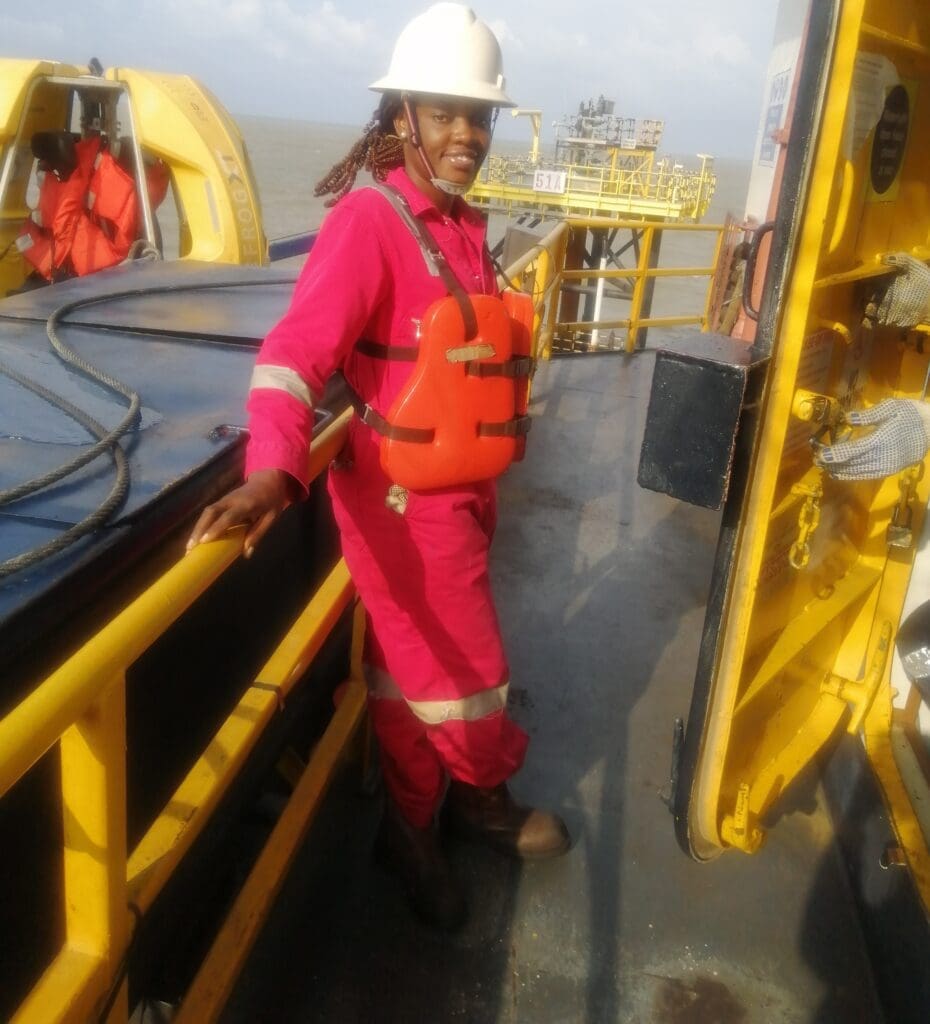

Woman coiled tubing field service engineer working on oil wells
Background
Did science and engineering interest you when you were a child?
Yes, I was, I enjoyed fixing simple household items like toys or appliances. I also loved joining my dad to repair electronic items. Then when I was older, I enjoyed designing items.
Did you like understanding how things worked?
Yes, from childhood learning how things work has interested me. As well, this has been a strong driving force in my career.
Why did you decide to study electrical and electronic engineering?
I enjoyed repairing electronics. I loved mathematics too and I was also curious about knowing how things work. So, as a teenager, I sought guidance for my career path. Electrical/Electronic engineering aligned with my passion.
What then interested you in studying further and specialising in petroleum technology?
After my university education, I wanted to work in the oil & gas sector, but I realised I did not have much knowledge in that sector. Fortunately, I obtained a scholarship to study petroleum technology at the Institute of Petroleum Studies (IPS) University of Port-Harcourt/IFP France.
Typical week as a woman working on oil wells
Preparing for a job
What’s your typical week like? (when preparing for a job)
Typically, five days in a week is dedicated to professional responsibility at the equipment base. The week in preparation for a well intervention job mobilisation involves different departments. Prior to well-site mobilisation, the Client provides the current problem with the well(s), the kind of solution hoped to be achieved and other information (like the well parameter, well history etc.).
The field supervisors go ahead with well-site inspection and report their findings (data about the well, the well-site, and security are in the report). Concurrently, the technical engineers perform simulation and propose a solution to the Client.
If the Client is satisfied with the proposed solution, they’ll proceed to mobilise the CT (coiled tubing) team. As a field engineer, planning of the job involves activities like equipment selection, equipment conformance to Quality Assurance and Quality Control (QAQC) and ensuring equipment maintenance clearance. I also populate the dog house with all required tools, spares, hydraulic oil, PPE, and consumables. Then, I organise all Personnel FTWs (fitness to work) and relevant document. Pre-job meetings are also performed. Thereafter, the CT (coiled tubing) team & equipment are mobilised to the well-site.
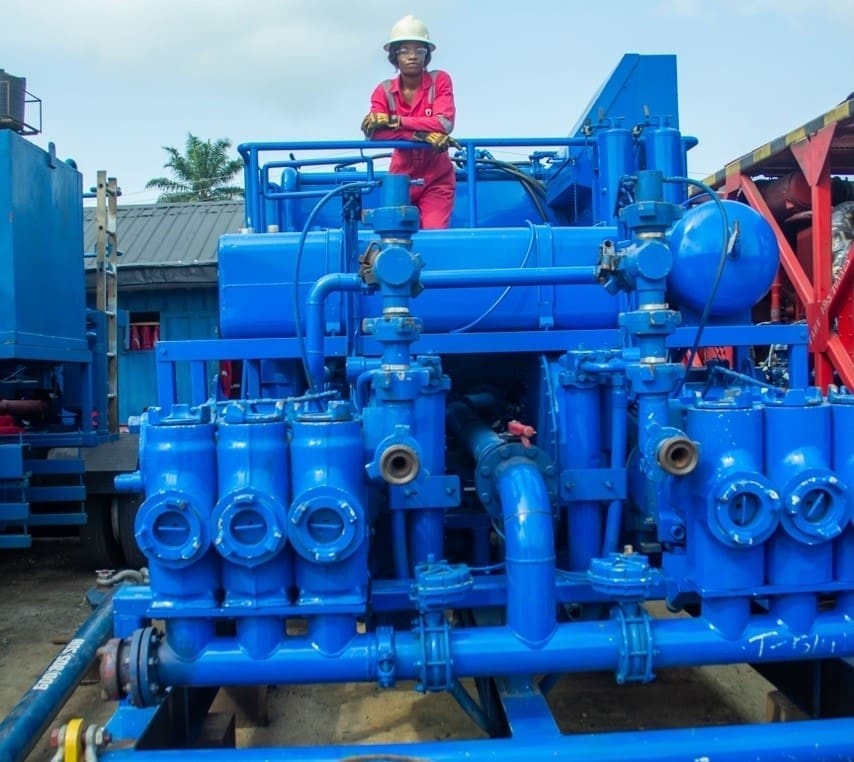

Working onsite on oil wells as a woman
What’s your typical week like? (when working away onsite)
As a field engineer, I have worked in rig-less well intervention projects like wellbore clean-up, acid stimulation & nitrogen lift operation via coiling tubing (CT). Typically, my first week in the field starts up with personnel arrival and securing accommodation, then permit-to-work (PTW) is processed for the well. Our equipment and chemicals also arrive on the well-site.
Each day at the well-site, we begin with a toolbox meeting. As a field engineer, I document daily job logs (which captures every single activity performed). As well, I track all personnel, equipment, chemicals, and consumables.
The day after we arrive, I ensure the operators perform documented pre-trip (checks) on all equipment. We do this to ascertain the state of the equipment on arrival at the well-site. At the same time, the wellhead team performs well integrity test on the oilfield Christmas tree.
Equipment spotting and rig up is done with the agreed layout schematics on the P & ID (piping and instrumentation diagram) and standard equipment spotting for CT operation as documented in the Design of Service (DoS). Then, pressure tests are performed to ensure the safety, reliability, and leak tightness of pressure systems. These preliminary activities are performed to prepare for the actual treatment on the well.
The Data acquisition system is set up and all well parameters captured in real time which is used by my team to interpret the well behaviour and performance, effective service with zero service quality issues, and best HSE standards.
Starting wellbore treatment
Once we have confirmed all tests, okay by the fourth/fifth day, we commence with wellbore treatment, by adhering to the plan on the DoS. The field engineer works closely with the field supervisor, and we both review the DoS (re-calculate, analyse parameters on DoS with the actual parameters). Also my team members are carried along with respect to their individual roles specified on the DoS (volume of fluid, pressures and rate per time e.t.c). While from the CT console, I monitor the well and fluid parameters real time.
Additionally, from time to time, the field engineer must stay abreast with activities performed by other service providers. Also, we need to send daily reporting to my company’s management team.
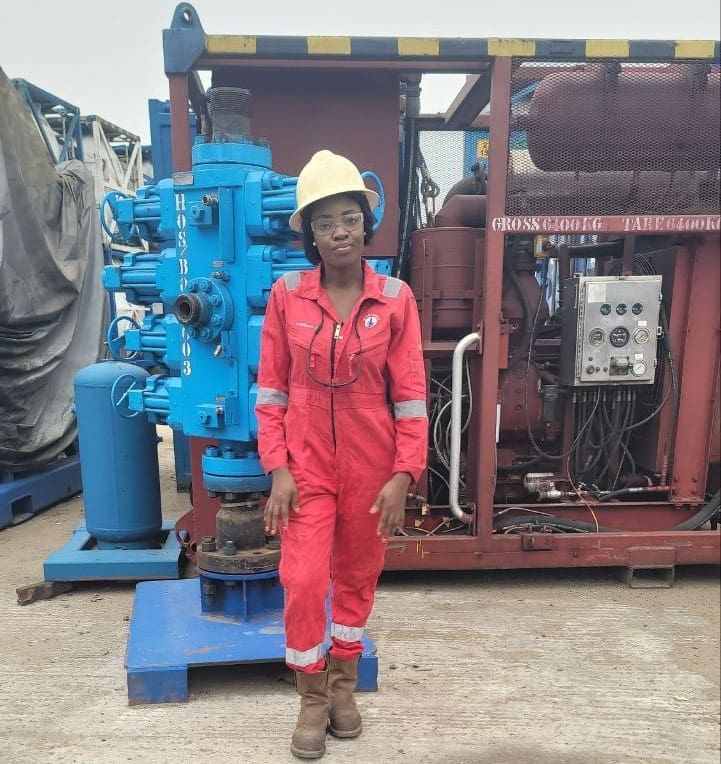

Working pattern as a woman working on oil wells
Do you work on a shift or rotational basis?
While away in the field, I work for twelve hours (either on day shifts or night shifts). But at the base, we don’t work a shift pattern.
Do you have to be on call at night or weekends?
While in the field, there is literally nothing like weekends. But at the office base, we seldom work weekends.
Physical fitness as a woman working on oil wells
How important is physical fitness at work for you?
As a coiled tubing service engineer, it does not require so much physical strength. However, I require physical strength when I need to assist my team members during certain activities (for instance rig-up of high-pressure Irons and hydraulic hoses).
Work life balance
You also work part time as a realtor. How do you balance both your jobs and time for family and friends?
It’s been pretty difficult balancing work-life, business, family, and friends. But considering the enormous benefits real estate investment offers in building wealth: it’s worth taking seriously.
As a Bamboo realtor, I don’t necessarily need to be physically present during inspections and land/home allocations (we have people assigned to do that). I can do the necessary guidance required by my client and documentation remotely. Although Bamboo usually have events or training sessions which require physical attendance, so I use my weekends for those. For my family and friends, I use my weekends too and some evenings.
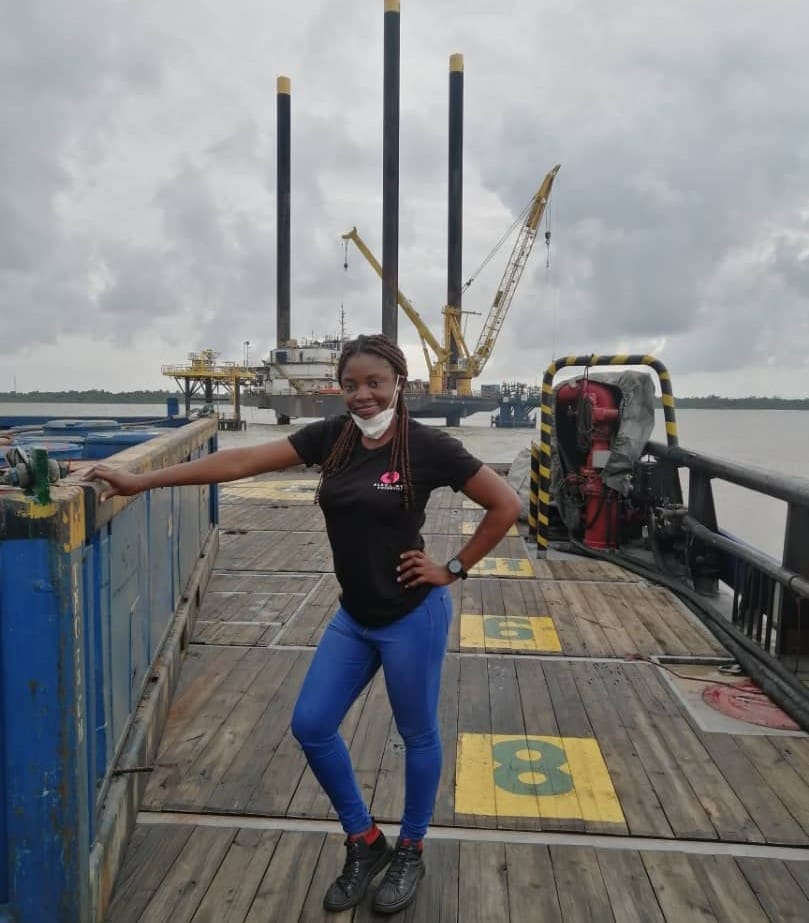

Most challenging part of the job as a woman working on oil wells
What do you find most challenging when you are working – technical side or people?
Definitely the technical side, for most of the time I have the privilege to work with people who have good team spirit.
What has been your most challenging job so far?
As a field service engineer, my company could assign a service engineer to either function as CT (coiled tubing) service engineer or a pump supervisor. So 3 years ago, my first time as a pump supervisor was a little challenging for few days; but I was able scale through in good time.
Is your role ever uncomfortable because of heat, cramped spaces, bad lighting etc? How do you cope with this?
Yes, most companies try to improve on bad lighting at the wellsite (it’s an unsafe condition). However, for the heat and cramped spaces, that may be unavoidable. So, then I always have drinking water around.
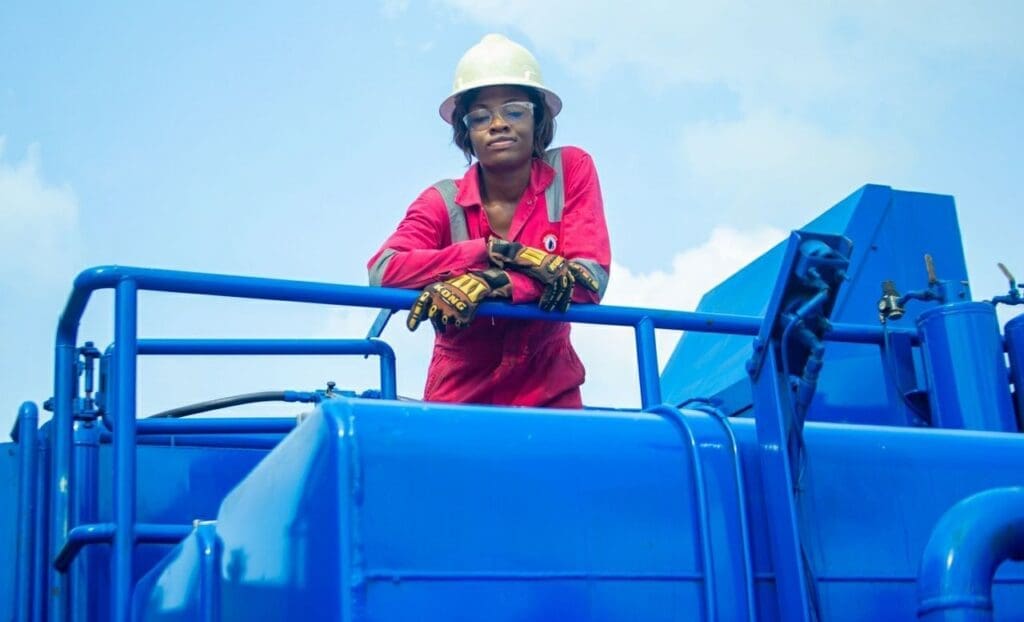

Women in engineering
The number of women in the oil and gas engineering is increasing. What can increase it more?
I think there are three main ways to encourage more women into oil and gas.
Jobs
More job openings for women in the oil and gas engineering.
Mentors
Improve mentorship as here in my country, we need more active professional societies, where industry professionals can mentor fresh graduates and university students. Also, raising an awareness campaign for the benefits of professional affiliations and mentorship.
‘Catch them young’
Improve on the ‘catch them young’ campaign. From time to time, STEM industries should sponsor events to encourage teens and younger children towards choosing a STEM course.
What advice would you give to a woman when they are the only woman in a team?
Build your skills and expertise, be confident in your abilities, be authentic and genuine, develop strong relationships and allies; remember to stand-up for yourself.
What would you say to a woman who is considering working in the oil and gas industry?
She needs to keep developing her skills, know the limit of her physical strength, be discerning, be supportive of other women and most importantly she needs to develop mental toughness. As a female in the field, you may work with male colleagues that are very supportive. But there may be a few occasions you’re likely going to meet a male counterpart that would feel irritable to see a woman in the field and could try ways to make you feel inferior. Hence, you need to build a healthy self-esteem, speak up against such marginalisation and build a tough mind-set. (I have experienced these things on few occasions while working with other service providers.)
What are your tips for feeling confident and not out of place?
Being proud of the small things, believe in your cause, speaking up, learning to say no and acceptance – that it’s OK to be wrong.
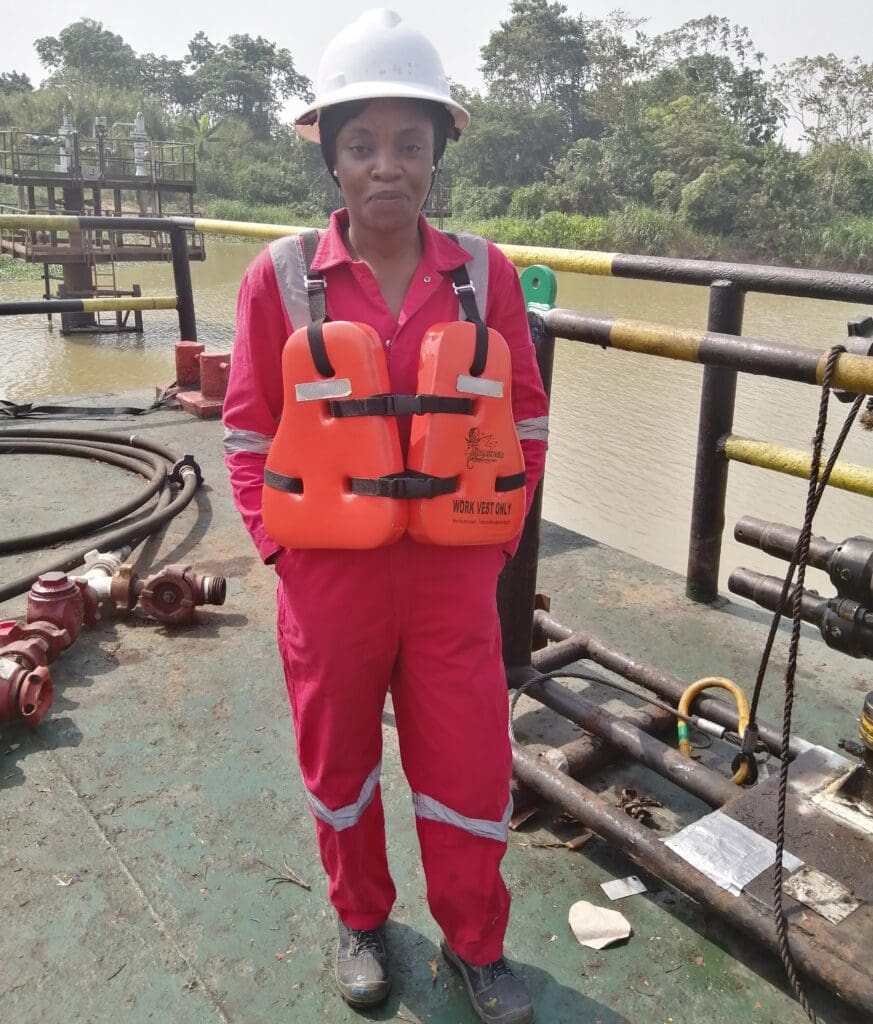

Further reading about engineers in oil wells
Managing engineers in the field
Coiled Tubing Operator at Halliburton working in a swamp
Life in Energy offshore for a Well Test Operator
Life as an Electro-Technical Officer on a Self-propelled Jack-up vessel


Responses